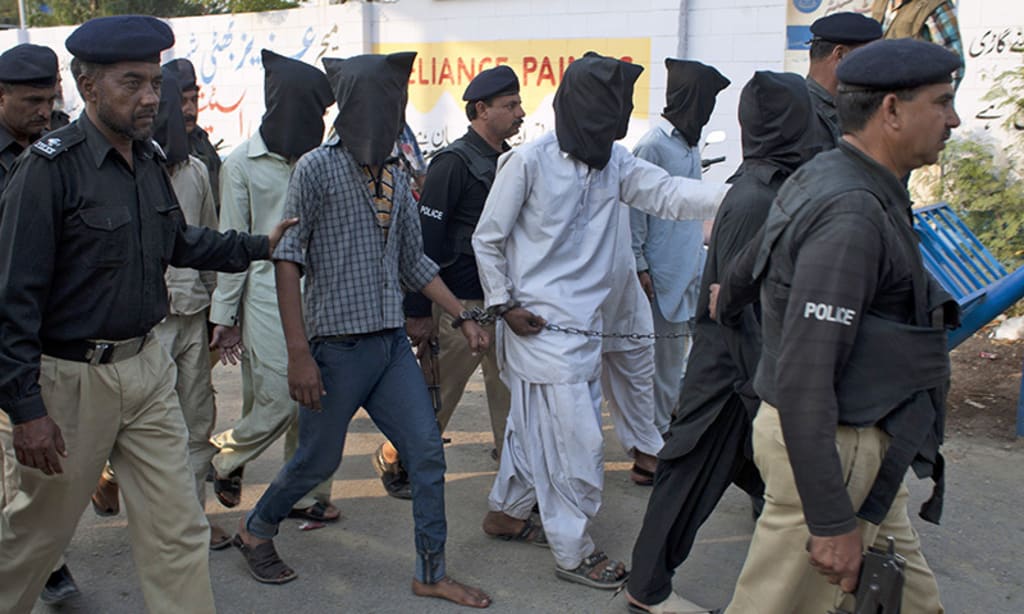Reforming Pakistan’s Criminal Justice System
As part of its development agenda, Pakistan must seriously consider reforms to its criminal justice system. This is especially so because these reforms are an essential part of addressing the root causes of terrorism, and are also critical to reducing impunity in Pakistan.

Reform for Restoration of Peace.
Pakistan must go beyond superficial changes and urgently invest in measures that will enable the judiciary, the police, and the government to respond more effectively to and in conflict areas.
The security situation in Pakistan has changed dramatically since the 1950s. Most major terrorist groups in Pakistan were originally based in Punjab, although they later spread across the country. Pakistan also has a significant Taliban presence in the northwest and Balochistan, and in the northwest, it also has the second-largest armed Islamic terrorist group, the Haqqani Network, which is headed by Jalaluddin Haqqani, a former leader of the Taliban.
This is not the first time that Pakistan has promised to change the criminal justice system. For example, in April 2017, President Mamnoon Hussain signed a National notorious persons (NPI) Ordinance which, amongst other things, criminalized terrorism. However, like previous laws, this was quietly withdrawn when it failed to find a political support base. Pakistan’s federal and provincial governments have to have the will to introduce and enforce such laws, as well as put into place a comprehensive and long-term strategy to integrate policing, prosecution, and judicial processes. This cannot be done simply by passing another law. There must be a political commitment to enforce the NPI Ordinance and a strategic vision for how this law will be implemented.
Pakistan’s Criminal Justice System in NPI devider's?
A new strategy for criminal justice reform in Pakistan is long overdue. Prime Minister Nawaz Sharif declared in his April 2017 Independence Day speech that Pakistan was at war with extremism, and pledged to “eliminate the roots of terrorism from Pakistan.” Nonetheless, almost a year later, Pakistan’s criminal justice system is no closer to having the capacity to carry out its reform agenda.
To ensure that Pakistan’s criminal justice system can respond effectively to, and in conflict areas, it needs an effective strategy. In addition to adopting the necessary legislative, judicial, and other procedural reforms, it must also focus on a clear, credible and sustained public information campaign that highlights the repercussions of terrorism and its perpetrators, which can serve as a strong deterrent to those contemplating violence.
As part of the strategy, the Pakistani government needs to consult widely with law enforcement and security experts, as well as with domestic and international development agencies, civil society, and nongovernmental organizations working in this area. In addition, it must be willing to embrace innovations, such as partnerships between police, prosecution, and intelligence agencies, as a means of addressing gaps in the criminal justice system. It must also make major investments in the capacity of the judiciary to try terrorism cases, and commit to independent oversight of all future trials.
Finally, Pakistan must commit to a campaign to change the attitudes of ordinary Pakistanis towards terrorism and violent extremism. This will require an honest public debate in Pakistan about the causes of terrorism, and how to address them.
Reforming Pakistan’s Criminal Justice System
Policymakers and people need to rethink the role of law enforcement institutions in Pakistan. In order to achieve this, there is a need to reform the entire criminal justice system. The criminal justice system in Pakistan has been found to be one of the most corrupt in the world. The current criminal justice system not only violates human rights, but also enables criminals, giving them a free hand to carry out their nefarious activities.
- Adoption of Criminal Justice System Reforms
- Key Mechanisms To Deliver
The Punjab government has adopted a number of reforms, based on which a number of criminal justice related policies and reforms have been implemented. These reforms are the following:
Stimulated Prosecution.
The government has allocated adequate funds for the courts to ensure speedy justice. The government has also undertaken a number of reforms to ensure the resources of the courts are utilized effectively. The government has also prioritized high priority cases. The following services have been introduced:
Additional District & Session Judge.
As per the directives of the Supreme Court of Pakistan, the provincial government has introduced the Prosecution service in the region. Through this service, prosecution officers are also appointed to deal with criminal cases.
Jail Suicides.
Despite the fact that around 32 suicide cases have occurred inside the jails in Punjab, the government’s carelessness seems to be standing on its head. The government is responsible for the security of the inmates and it is unfortunate that most of the suicides in jails have occurred when the caretakers were on leave. The government should take proper measures to ensure the safety of the inmates.
Protection Of Civil Servants.
The Punjab government has included the Protection of Civil Servants from Personal Attack Bill.
The government has also raised the salaries of civil servants, police officers, prosecutors, and judges, enabling them to enjoy a respectable living standard.
Improvement in Justice Delivery System.
Justice is a fundamental right of every citizen of Pakistan. Unfortunately, the current system of justice delivery is not giving justice to the people. The government is requested to adopt the following reforms:
Jail System Improvement.
Punjab government has taken some steps in this regard. In order to improve the present system of correction, and correctional services in the province, the government has undertaken a number of reforms.






Comments
There are no comments for this story
Be the first to respond and start the conversation.